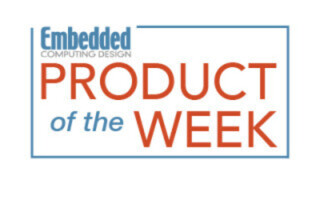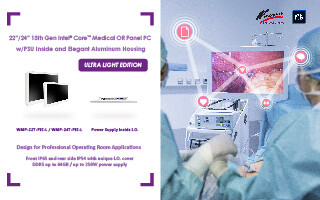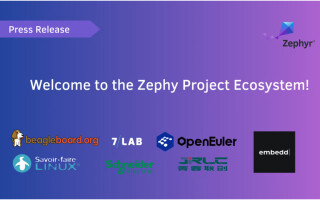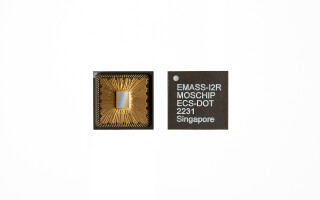How IoT is Transforming the Healthcare Industry
June 30, 2020
Story

The adoption of the IoT has revolutionized the way the healthcare industry works now, as it has great potential and multiple applications, from remote monitoring to medical device integration.
The adoption of the Internet of Things (IoT) has revolutionized the way the healthcare industry works now, as it has great potential and multiple applications, from remote monitoring to medical device integration. In healthcare, the IoT is used for interconnected healthcare devices like monitoring systems, sensor machines, and detectors that can capture real-time health information. The detectors store the information on a centralized cloud/server to be later analyzed for better healthcare service.
The IoT market in healthcare is expected to grow USD $188 billion by 2024, at a CAGR of 27.6% during the forecast period. All the large players in this industry are trying to take advantage of this growth and improving their solution or investing to adopt such technologies.
Digital Technologies that are Transforming the Healthcare Industry
Healthcare is about to change beyond recognition. The need to collect, store, and analyze patient data has driven the healthcare industry to embrace various trending digital technologies.
? Internet of Things (IoT): IoT enabled smart and connected solutions like smart sensors, wearable devices, and smart health monitoring systems are used to unleash the potential growth of the healthcare industry. They will do this by improving the treatment using efficient health tracking. The growing popularity of IoT in healthcare and medical fields has raised modern techniques i.e., Internet of Medical Things (IoMT). The IoMT is an ecosystem of smart devices that can communicate with each other in a real-time environment and formulate results. This reduces human errors to a vast degree and eliminates a lot of decision-making delays.
? Cloud Computing: Cloud helps us to secure patient data and ensure regulatory compliance while allowing healthcare providers to continue delivering advanced technological care. This extends the patient experience to the digital space. A variety of public, private, and hybrid cloud platforms help us to get better access to patient’s records.
? Artificial Intelligence (AI): AI applications have helped boost up the speed and accuracy of medical diagnosis. AI is used in research and development of new medical products. It also helps to automate repetitive tasks of medical staff like routine paperwork, scheduling, and time-sheet to improve efficiency and reduce the cost. AI has also helped doctors analyze the historical patient data to identify any insight for a better cure.

Fig. 1 – IoT in Healthcare
How Digital Transformation is Driving Change in Healthcare Applications
? Wearables to track health vitals: Wearables are electronic technology or devices used to track the patient's real-time health data. This includes glucose levels, blood pressure, heart rate, and other physical activities. Mobile Apps collect health data from those devices and transfer the data to the cloud. Using data, physicians can analyze the behavior of their patient's health and take decisions to improve treatment. Fitness bands and smartwatches are most popular in wearable families complying with mobile applications.
? Smart Hospitals: Paperless hospitals and clinics which use central electronic health records (EHR) to manage their patient’s data. Medical and billing records are not required to be kept in files and papers. Storing such details in cloud services makes them easily accessible and manageable. Smart hospitals offer some benefits to healthcare facilities such as patient engagement, streamlining communication, hospital assets tracking, workflow optimization, etc.
? Mobile Healthcare (mHealth): The face-to-face interaction of patients and doctors is changing. The mHealth app creates a different way for doctors to take care of their patients. Telehealth, telemedicine, and remote patient health monitoring have assisted in saving patient’s lives in case of medical emergencies like asthma attacks, heart failure, and diabetes. The use of mHealth apps and devices is already spread in clinical trials, pharmaceutical giants are now setting their sights on connected drug delivery platforms as well.
Major Benefits of IoT Being Delivered in Healthcare Segment
The IoT is transforming the healthcare industry to the next decade when it comes to the way that apps, devices, and people interact when delivering healthcare solutions. Below are some major benefits of adopting IoT in the Healthcare industry:
? Real-time monitoring – Smart healthcare devices provide patients with real-time personalized health status. They remind the patient to check their regular health status. In case of any medical emergencies like heart failure or an asthma attack, the device notifies earlier and helps to contact directly with the doctor.
? Better patient experience – Being connected to the healthcare system through the internet, increases the interest level of patients as well as doctors able to improve diagnosis accuracy with the help of real-time health data.
? Cost Reduction - Using IoT solutions and connected medical devices allows the doctor to monitor the patient remotely with the real-time data, which fasten the treatment and gives benefits like constant communication, reduces the usage of the hospital’s resources and traveling expenses, etc.
Few Challenges of Adopting Digital Technologies in Healthcare
Digital healthcare systems leverage IoT and big data to have a seamless digital connection with the patient. These systems are also being increasingly connected via the internet to various types of medical wearable technologies that help us with real-time patient information. However, several challenges need to be addressed before digital healthcare should be adopted:
? Efficient data security required to maintain patient privacy
? The integration of multiple devices working with different protocols increases complexity and slowdowns the process of data exchange
? The huge amount of stored data require efficient memory and data management techniques
About the Author
Rahil Shrimali is associated with VOLANSYS as a Senior Engineer in the Mobile Domain for 2 years. He has expertise in the design and development of iOS and cross-platform apps. His key areas of interest are in smart-home and smart-healthcare systems.




